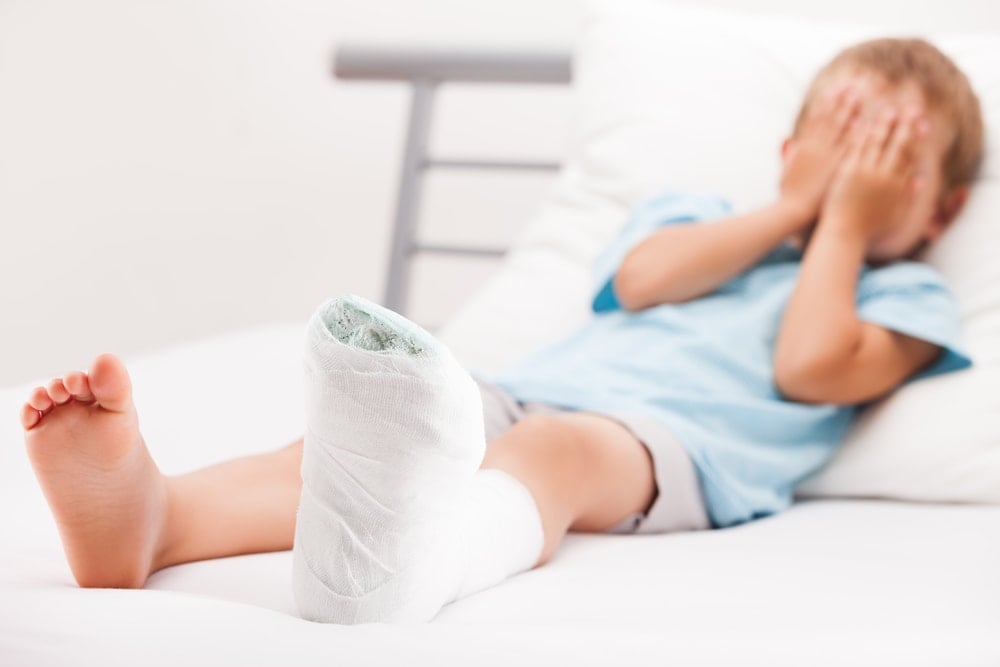Can Children Get Gout?
When we think of gout, we think of older people suffering from the disease and not really children or teenagers but the truth is, that gout affects them also. Fortunately, gout in children is uncommon but it can affect anybody from the age of 12 and over. Although gout in children does not occur often, their bodies can begin forming excessive uric acid at a young age if they form bad eating habits in early life.
For example, kids who grow up eating a diet high in sugars and low fiber are at an increased risk of suffering from many different health problems, one of them being gout. A kid’s diet that is high in sugars and meat, and we know much kids love hot dogs and burgers, may eventually lead to higher uric acid in the blood, laying the groundwork for gout in the future.
Like everybody else, children can experience inflamed, hot and reddened joints caused by gout making moving difficult for them. According to National Institute of Arthritis and Musculoskeletal and Skin Diseases, children can experience gout in any of their joints like their ankles, knees and fingers as well.
Children are also at a higher risk of developing gout if they are already suffering from diabetes, kidney disease, obesity or certain blood cancers. According to KidsHealth doctors typically test uric acid levels in the blood if gout is suspected and treatments are very similar like the ones for adults.
A 2017 study published in the American Journal of Hypertension suggests that high uric acid in children may be associated with an increased risk of developing high blood pressure as adults and even gout!
Child obesity is a serious issue in North America and the facts don’t lie. According to the Centers for Disease Control and Prevention they report the following dangerous trends:
- Childhood obesity has more than doubled in children and quadrupled in adolescents in the past 30 years.
- The percentage of children aged 6–11 years in the United States who were obese increased from 7% in 1980 to nearly 18% in 2012. Similarly, the percentage of adolescents aged 12–19 years who were obese increased from 5% to nearly 21% over the same period.
- In 2012, more than one third of children and adolescents were overweight or obese.
The CDC goes on to list the childhood obesity long-term health effects of a poor children’s diet:
- Obese youth are more likely to have risk factors for cardiovascular disease, such as high cholesterol or high blood pressure. In a population-based sample of 5- to 17-year-olds, 70% of obese youth had at least one risk factor for cardiovascular disease.
- Obese adolescents are more likely to have prediabetes, a condition in which blood glucose levels indicate a high risk for development of diabetes.
- Children and adolescents who are obese are at greater risk for bone and joint problems (you can add gout here), sleep apnea, and social and psychological problems such as stigmatization and poor self-esteem.
- Children and adolescents who are obese are likely to be obese as adults and are therefore more at risk for adult health problems such as heart disease, type 2 diabetes, stroke, several types of cancer, and osteoarthritis (you can add gout on the list as well).
We can all agree since we see it all around us nowadays that the majority of children spend less time outdoors playing with other children and spend more time sitting on a computer, television or their Xbox. This is obviously not good, since children lack physical activity and exercise adding to childhood obesity and future health problems. Parents reading this please take note and do something to change this horrible habit.
Other causes of gout in children and teenagers can be simply from genetic or inherited conditions like Lesch Nyhan syndrome which cause overproduction of uric acid. This condition occurs more in boys compared to girls.
As you can see, gout can affect anybody from children to the elderly and from teenagers to young adults. The key is to make our children eat a healthy diet, offer treats and other junk food in moderation and make sure they live physically active lives. The rest will take care of itself. Early life health is so important for our children since it can affect them negatively in adulthood.

